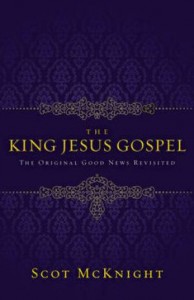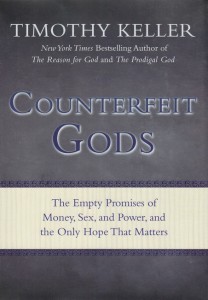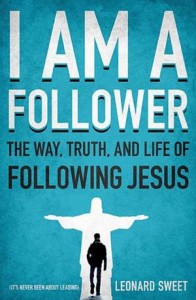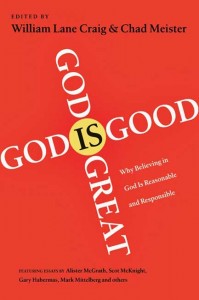Scot McKnight’s latest book, The King Jesus Gospel, is a revolution for evangelicalism. It is an incredibly important and timely work, one which calls us to leave behind our “salvation-culture” and take up, once again, the “gospel-culture” set forth by the preaching of Jesus and the apostles.
I’ve worked through a little over half of the book on the blog already. My discussion of the first three chapters, which lays the groundwork by establishing the problem McKnight sets out to address, can be found here. The second post on the book, which dealt exclusively with chapter four, in which he lays out the book’s thesis and defines the apostolic Gospel, can be found here. The last post I wrote on the book covered chapter 5, where Scot discusses how salvation overtook the Gospel.
 Here is a brief sketch of the main points of the book:
Here is a brief sketch of the main points of the book:
We evangelicals have mistaken the Plan of Salvation for the Gospel.
We have traded in a gospel culture for a salvation culture.
Our evangelism focuses exclusively on bringing people to a point of decision.
As a result, we do a poor job of making genuine disciples of Jesus.
The biblical gospel is the Story of Jesus, found in 1 Corinthians 15:3-5
In that last post I promised to cover the final two chapters of the book in a future post. So without further ado, I shall keep my promise.
Chapter 9: Gospeling Today
The way that we “gospel”, or evangelize, today is different from the way the early believers, including the apostles, evangelized. (Scot likes to use the word “gospel” as a verb, so I’ll put it that way from now on.) He sees several points of comparison, the first of which is what gospeling seeks to accomplish. “The gospeling of Acts, because it declares the saving significance of Jesus, Messiah and Lord, summons listeners to confess Jesus as Messiah and Lord, while our gospeling seeks to persuade sinners to admit their sin and find Jesus as their Savior.” (133) He goes on to say, “the gospeling of the apostles in the book of Acts is bold declaration that leads to a summons while much of evangelism today is crafty persuasion.” (134) Ouch!
I’ll skip to the fourth point of comparison between the gospeling of the first Christians and our own evangelism–the problem gospeling resolves. What is the problem that the Gospel solves? Without minimizing sin and the need for forgiveness and reconciliation, Scot frames the solution this way: “The fundamental solution in the gospel is that Jesus is Messiah and Lord; this means there was a fundamental need for a ruler, a king, and a lord.” (137) He says much more on this point, and I want to tempt you to get the book and read it for yourself with this quote:
Gospeling declares that Jesus is [the] rightful Lord, gospeling summons people to turn from their idols to worship and live under that Lord who saves, and gospeling actually puts us in the co-mediating and co-ruling tasks under our Lord Jesus. (142)
Chapter 10: Creating a Gospel Culture
So now what? How do we go about creating this gospel culture that we so desperately need? The first thing we must do is become people of the story. “To become a gospel culture we’ve got to begin with becoming people of the Book, but not just as a Book but as the story that shapes us.” (153) Too many of us are functionally biblically illiterate. We are more profoundly shaped by the doctrines and dogmas that we extract from the Scriptures than by the overarching story God is telling within them; and while there are many dogmas, there is only one Story.
We must also become people of the story of Jesus. “We need to immerse ourselves even more into the Story of Jesus. The gospel is that the Story of Israel comes to its definitive completeness in the Story of Jesus, and this means we have to become People of the Story-that-is-complete-in-Jesus.” (153) We must return to the four Gospels!
Thirdly, we must become people of the church’s story. “We need to see how the apostles’ writings take the Story of Israel and the Story of Jesus into the next generation and into a different culture, and how this generation led all the way to our generation.” (155) Christianity was not invented in 1865; it has come down to us through nearly 100 generations of believers. There is much we can learn from them. “We have no right to ignore what God has been doing in the community of Jesus since the day he sent the Spirit to empower it, ennoble it, and guide it.” (156)
There is more to say on these points, and Scot presents two other important points to create a gospel culture, but this is a book review, not a book report. Here is my review: Read this book!
Now I want to say one thing that Scot doesn’t about how to create a gospel culture, and I say this to my fellow preachers out there. Preach the Gospel! Stop participating in the damnable story of American Consumerism & Pragmatism. Stop trying to draw a crowd. Stop preaching the no-Gospel of Success & Self-Improvement. That is not your task. That is not your calling. You are a minister of the Gospel, so preach it!
Your sermons shape your congregation and define its culture, and too many of you are creating a culture that is nothing more than a slightly more moral version of the wider American culture. You’re telling the wrong story. You cannot create a gospel-culture unless and until you preach the Gospel. This will most likely take you down a new path, one that you probably won’t like. You will have to say goodbye to the Story of Success and Fame and Power. But you’ll discover that the Gospel is worth it.
May the Church’s preachers become gospelers, that we all might learn to live out the Gospel, boldly proclaiming that Jesus Christ is King-over-All.
 Each chapter reads like a sermon and concludes with a call to worship the true God and his son Jesus Christ. Through this repetition of structure, Keller calls his readers to abandon their false gods and worship and serve Jesus only. It is an effective literary and rhetorical technique (I can only assume that these chapters were originally written as sermons) in which the false gods are crushed and the true God is elevated to his rightful place on the throne of our hearts.
Each chapter reads like a sermon and concludes with a call to worship the true God and his son Jesus Christ. Through this repetition of structure, Keller calls his readers to abandon their false gods and worship and serve Jesus only. It is an effective literary and rhetorical technique (I can only assume that these chapters were originally written as sermons) in which the false gods are crushed and the true God is elevated to his rightful place on the throne of our hearts.



